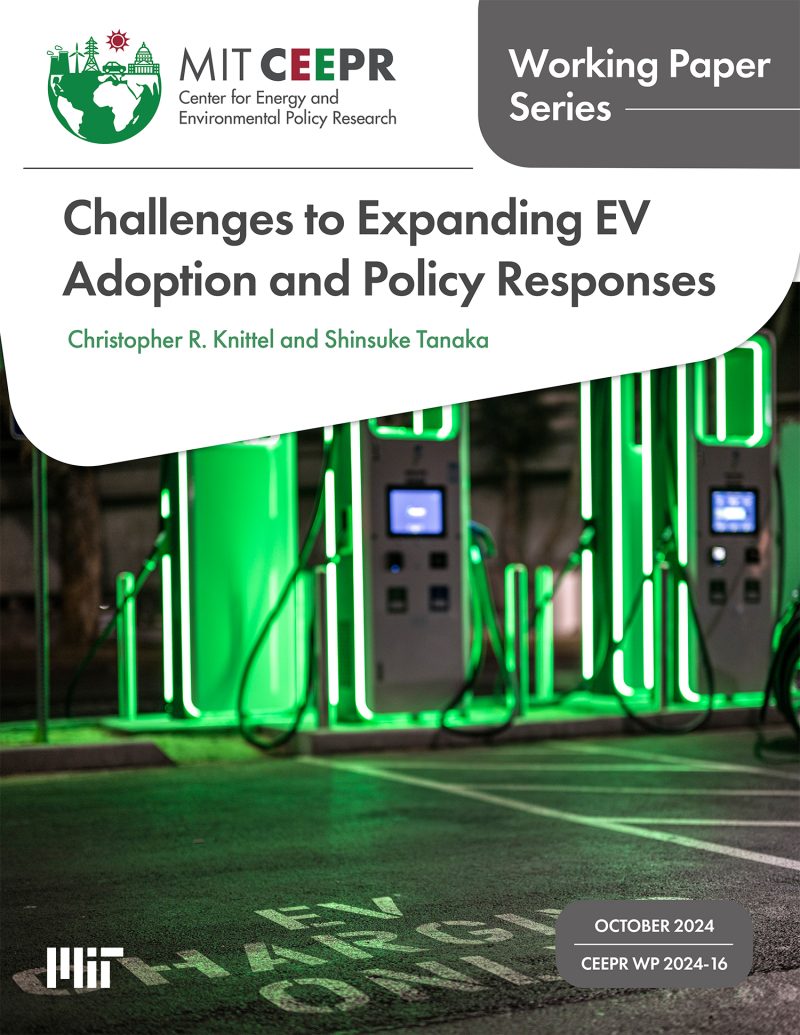Challenges to Expanding EV Adoption and Policy Responses
Christopher R. Knittel and Shinsuke Tanaka
October 2024
The transportation sector is pivotal in global decarbonization efforts, given its significant contribution to greenhouse gas emissions. This paper examines the challenges hindering the widespread adoption of electric vehicles (EVs) and the policy responses to address these barriers. Despite advancements in EV technology and an increase in global EV sales, adoption rates in the U.S. remain low due to high upfront costs, range anxiety, and insufficient public charging infrastructure. The study analyzes various financial incentives, such as tax credits and rebates, and the impact of these policies on EV adoption. It also highlights the importance of expanding EV charging infrastructure, reviewing federal and state initiatives aimed at enhancing the availability and accessibility of charging stations. By comparing international policies and their effectiveness, the paper provides insights into potential strategies for overcoming obstacles and promoting sustainable transportation in the U.S.
Keywords: Electric Vehicles (EVs), Greenhouse Gas Emissions, Tax Credits, Sustainable Transportation
*Note: The final version of this working paper will appear as a chapter in the forthcoming Handbook on Electricity Regulation, edited by Jean-Michel Glachant (Florence School of Regulation), Paul Joskow (MIT), and Michael Pollitt (University of Cambridge) and published by Edward Elgar.



